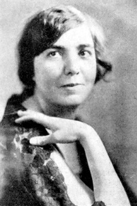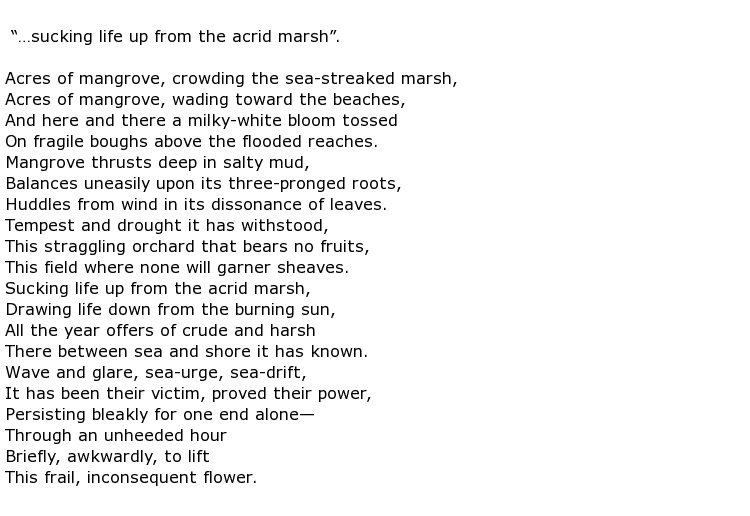 Muna Lee was an American lyric poet, college teacher and vociferous campaigner on behalf of equal rights, especially for women, in her adopted homeland of Puerto Rico, which is where she mostly lived for the last 25 years of her life. She was especially interested in Latin American poets and she produced an important anthology of their work in 1925, using her language skills to translate from Spanish.
Muna Lee was an American lyric poet, college teacher and vociferous campaigner on behalf of equal rights, especially for women, in her adopted homeland of Puerto Rico, which is where she mostly lived for the last 25 years of her life. She was especially interested in Latin American poets and she produced an important anthology of their work in 1925, using her language skills to translate from Spanish.
She was born on the 29th January 1895 in Raymond, Mississippi into a large family of nine children, of which she was the eldest. Her father took the family to Hugo, Oklahoma in 1902 to set up a drugstore. At the time this was very much “Indian country” although ever-increasing numbers of whites were moving to the area. By the age of 14 Muna was back in her home state, attending the Blue Mountain College in preparation for her studies at the universities of Oklahoma and Mississippi. She graduated in 1903 and, having already shown a talent for writing verse, published her first poem shortly afterwards.
Her first forays into the world of work were teaching posts at colleges in Oklahoma and Texas but she continued with her writing. A number of them were published in magazines such as Poetry: A Magazine of Verse, amongst others, and she was honoured by winning the first Lyric Poetry prize put up by Poetry magazine. The world was preparing for war at this time and she decided to do her bit by joining the Secret Service and acting as a translator, having become proficient in Spanish, French and Portuguese. This did not affect her output of poetry though and she was soon the most frequently published author in the Smart Set magazine.
As the First World War drew to a close Lee became interested in Pan-American matters and she submitted a number of pieces of work to magazines such as Pan American Poetry where they were included for publication. Her ever-increasing involvement in this area led to her meeting a fellow poet, the Puerto Rican Luis Muñoz Marín, who struggled with a bi-lingual literary magazine called Revista de Indias (Indies Review). The publication folded but their relationship thrived and they were married on the 1st July 1919. They had two homes: one was in Puerto Rico and the other in New York City. Two children came from this union but, unfortunately, the couple were divorced in 1946.
Lee campaigned on women’s suffrage and other human rights issues in Latin America and, as an employee of the United States State Department, was an active promoter of cultural and literary exchanges between the two regions for over twenty years. Her first collection of translated poems came out in 1920 when they were included in a book called Hispanic Anthology. Her own anthology of 31 poems followed five years later and was included in a special issue of Poetry magazine. A further collection of a similar nature was published in 1941 under the title Anthology of Contemporary Latin-American Poetry.
In 1923 she had published a collection of lyrical poems called Sea Change. Here is an example of her poetry, a piece called Caribbean Marsh that clearly portrays her observational skills and ability to describe poetically the beauty of a mangrove forest that somehow survives by

Lee was a prolific writer throughout her life and she also co-wrote a series of five detective novels that were all written in the 1930s under the pen name Newton Gayle. These were very popular and included passages in both English and Spanish.
Muna Lee died on the 3rd April 1965 having contracted lung cancer. She was 70 years old and was laid to rest in a San Juan Cemetery in Puerto Rico.

